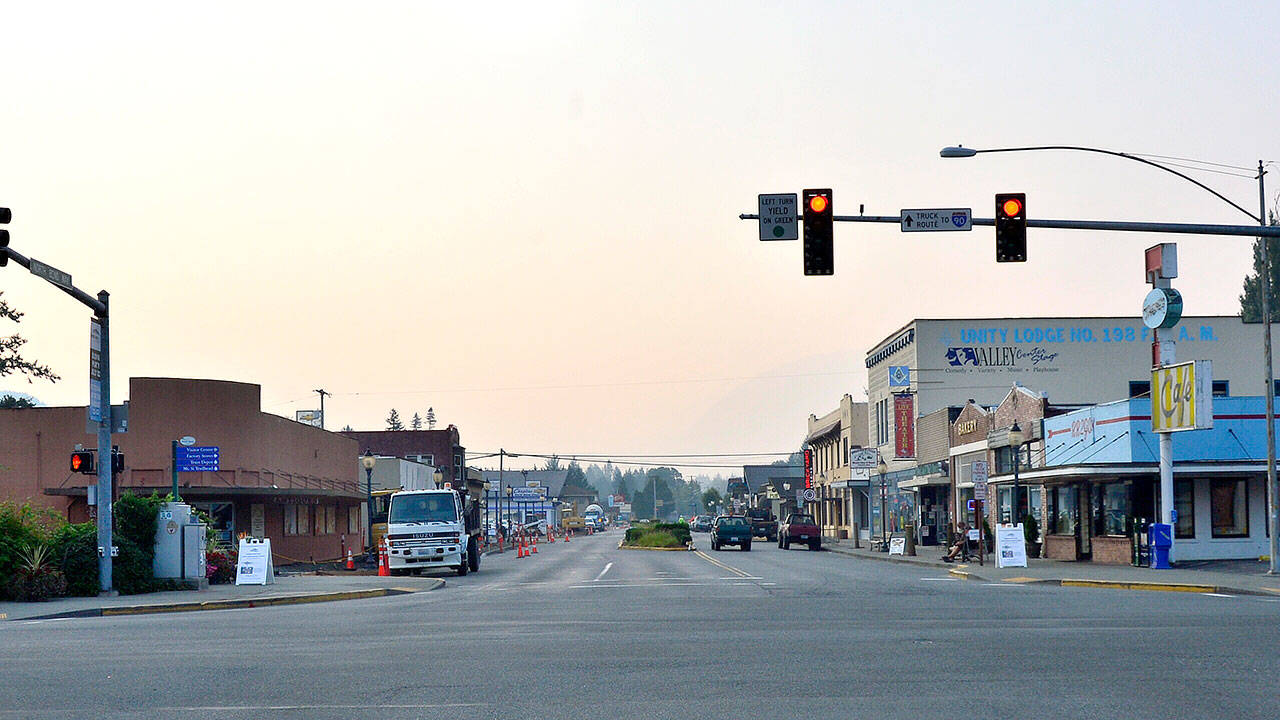The COVID-19 pandemic has been straining North Bend businesses. And while many are weathering the closures and decrease in customers, others will likely be forced to close for good.
Volition Brewing opened in the city’s downtown core last August. Lucas Haines, one of the owners, said they have been adapting to a changing environment. After Gov. Jay Inslee’s proclamations barred in-store service, the brewery began offering curbside pickup.
But as cases peaked, the brewery shut down for a couple of weeks to help keep the virus from spreading.
“Our whole business model is built around customer service, and we’ve had to adapt and change that a little bit,” Haines said.
The brewery is selling 32-ounce cans of beer while following sanitation and social distancing regulations. Haines is looking forward to reopening the taproom, even at a reduced capacity. He’s hopeful that local businesses in North Bend will pull through.
“Everybody’s adapted really well,” he said.
But others in the valley aren’t as optimistic. David Cook is a realtor at Cook Real Estate in the city’s downtown core. He said the economic impact of the coronavirus reminds him of the Great Recession. It’s hard to tell which businesses will survive, but some likely won’t.
“Some of our favorite places are going to go away again,” he said. “If a retailer is already struggling, this kind of thing can just wipe you out.”
Debra Landers, of the North Bend Downtown Foundation, shares that sentiment. All business owners she has talked to have applied for emergency loans and grants from the state and federal government. It’s a mixed bag on who has received financial aid, but for some who haven’t, the outlook is grim.
“It’s going to be really difficult for them to hang on,” she said.
Restaurants, small retailers and specialty stores are having an especially hard time. These businesses rely on foot traffic to supply a sustainable volume of purchases.
There has been community support. Landers launched a stimulus campaign, where her organization purchased hundreds of dollars of gift cards to send to residents. The winners were then encouraged to pay it forward by purchasing more from the store or giving it to residents in need.
They’re also hosting a small business bingo game where people are encouraged to fill in the board by visiting local establishments.
“Those are really jumped on and appreciated by people who are already supporting the local businesses,” Landers said.
Housing market
On top of uncertainty about the business scene in North Bend, it’s also unknown how the pandemic will affect the housing market in the valley. Cook said 2020 was shaping up to be a busy year for real estate.
“We were anticipating, as a real estate industry, to have probably one of the biggest real estate seasons on record,” he said.
The market has been hot since 2012, and interest rates and gas prices — which were already low — were falling even further. With planned expansions announced by Amazon, there was a huge demand for new housing. Cedar Landing saw dozens of houses sold between its opening and the start of the COVID-19 pandemic. But as the pandemic hit, the real estate market hit a pause button.
Sellers in particular stopped calling, and showing houses became more difficult.
But things may be turning a corner.
“Just this past week, my phone has started to ring more than it has in the last six weeks,” Cook said.
He’s anticipating an unusually busy summer season, one that could stretch into fall. Especially as tech workers, many of whom have kept working through the pandemic, keep looking for housing farther east in King County.


